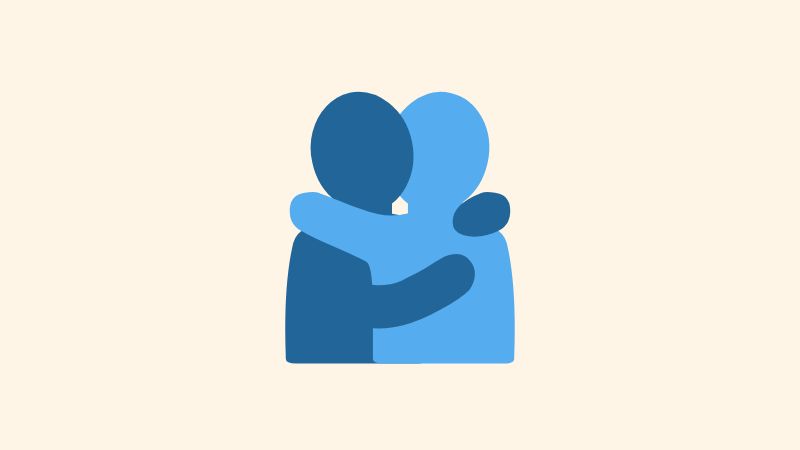Support at Home
How family and housemates can help support a gluten free lifestyle


Fast Facts:
⚡ Adjusting together - A gluten free diet is a big change for everyone involved - education and patience are key
⚡ Cross-contamination matters - Kitchen safety is crucial
⚡ Smart shopping - Learn labels and consider buying more naturally gluten free products
⚡ 100% GF meals - Preparing shared meals that are gluten free keeps things simpler and safer
⚡ Eating out - Friends and family can use our Gluten Free Map to help find safe places to eat
⚡ Explaining to kids - Use books, toys, and play to help younger ones understand
⚡ Mental health matters - A gluten free lifestyle can feel isolating—support and community are key
🫶🏾 Support & Understanding
Adapting to a gluten free lifestyle is a significant change - not just for the person diagnosed with coeliac disease or gluten intolerance, but for everyone around them. Whether you're going gluten free yourself or supporting someone who is, creating a safe, supportive home environment makes all the difference.
This guide is packed with practical tips on how families and friends can work together to manage everything from communication and cross-contamination to shopping, cooking, and mental wellbeing.
🧬 Genetics & Testing
Coeliac disease is a genetic autoimmune condition, so it often runs in families. If a relative is diagnosed - especially if you experience symptoms like digestive issues, fatigue, or nutrient deficiencies - it's worth speaking to your GP about testing. Catching it early can prevent long-term complications.
👉🏻 Learn more about testing for coeliac disease
🗣️ Communication is Key
It's hard to support what you don't understand. Having honest, two-way conversations can help build understanding and trust. Here's what helps:
- Clearly explain what coeliac disease or gluten intolerance is
- Talk about the health risks of gluten exposure (both short-term symptoms and long-term complications)
- Reinforce the importance of a 100% gluten free diet - not a 'sometimes' one
- Encourage curiosity - answer questions together and share resources - we've got plenty of free guides, why not share with them!
⚠️ Cross-Contamination Awareness
In a shared kitchen, avoiding cross-contamination is one of the biggest challenges. Even tiny crumbs of gluten can be harmful to someone with coeliac disease. Luckily, with a few simple adjustments, it's easy to manage.
Top tips:
- Use dedicated kitchen tools (toasters, chopping boards, wooden utensils)
- Store gluten and gluten free food separately
- Have your own butter/spreads or ban 'double dipping' to avoid cross-contamination from shared knives
- Wipe down surfaces and clean appliances regularly
🛒 Shopping Gluten Free
Gluten free shopping doesn't have to be stressful. Learning to read labels together can make it easier, and sometimes cheaper!
- Stock up on naturally gluten free foods (fruit, veg, rice, meat, pulses, etc.)
- Consider making a switch to gluten free alternatives for household staples such as stock cubes, gravies, pasta, flour
Need help on shopping gluten free? 👉🏻 Check out our guides on label reading
🧑🏽🍳 Cooking Gluten Free at Home
Making shared meals gluten free is one of the simplest ways to avoid cross-contamination and keep life easy. You don’t have to cook two versions of everything- and honestly, most people won’t notice the difference.
- Try doing one gluten free dinner a day that everyone eats
- If only one person in the home needs to avoid gluten, others can still have it outside the home or during solo meals
- Choose recipes where gluten free swaps are simple (pasta, flour, soy sauce, etc.)
🤩 Need inspiration? Check out our recipe section for HUNDREDS of gluten free recipes at your fingertips!
🍽️ Eating Out & Planning Ahead
Restaurants are getting better at catering to gluten free needs - but it can still be stressful and a lot of time, the gluten free person harbours guilt or embarrassment when eating out. Don't let the planning always fall on the gluten free person
- Encourage friends and family to use the Gluten Free Map to help find gluten free or coeliac safe restaurants
- Look ahead at menus, call ahead, or message venues to check out their allergen policies
- Share out restaurant guides and eating out tips so everyone's in the loop
👧🏼 Explaining Gluten Free to Children
Kids are naturally curious - use that to your advantage! Whether you're supporting a gluten free child or helping siblings/friends understand, keep it light, fun, and age-appropriate. Try not to scare them with this unknown disease that makes people poorly, instead try:
- Storybooks about coeliac disease or allergies
- Toys and role play to teach safe food choices
- Encourage questions and involve them in cooking/shopping
Got a gluten free child? Don't miss our guides for navigating nursery, school and university - coming soon!
👉🏽 In the meantime, here's a great guide on self-advocacy
💗 Mental Health & Emotional Support
Living gluten free - especially when newly diagnosed - can feel isolating and overwhelming. Mental wellbeing is just as important as physical health. Ways to support:
- Talk about how you're feeling and don't bottle things up
- Join gluten free communities online or locally
- Celebrate gluten free wins, like discovering a new safe restaurant or product
- Get yourself to one of the UK's gluten free food festivals - they are great places to discover new gluten free products and meet people just like you
🌟 Remember, it's okay to have tough days, but you're not alone.
🎯 Quick Recap:
Going gluten free doesn't just mean changing what's on your plate - it means building a lifestyle that protects your health and allows you to thrive.
With support, patience, and a bit of shared effort, home can be a safe space where everyone feels included. Whether you're gluten free yourself or supporting someone who is, every small act of understanding makes a big impact.
Got a friend or family member who needs a better understanding? Share this guide with them!